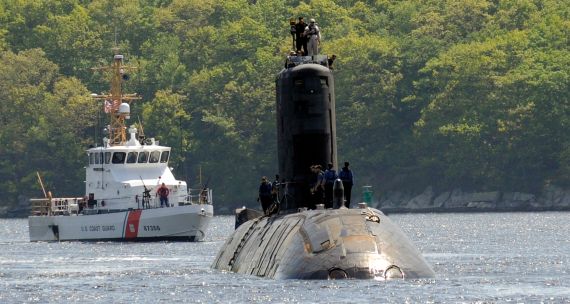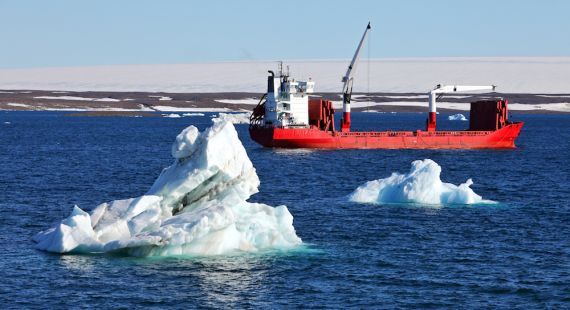A paper I just released by the University of Calgary's School of Public Policy debunks much of the hyperbole regarding the impact of climate change in the Arctic on the imminent opening of the Northwest Passage as a major shipping route to and from Asia.
I examine the impact of climate, shipping trends and market developments on both the Northern Sea Route across the Arctic regions of Russia and the Northwest Passage, and conclude that a multitude of factors present challenges that far outweigh the major advantage of the polar routes, namely the significantly shorter distance from ports in Asia to ports in Europe and the eastern seaboard of North America.
In other words, though passages are opening up due to climate change, they won't be as big a boon as once expected.
Offsetting challenges include unpredictability of ice conditions at different times of the year and from year to year, inadequate charts, shallow drafts on some routes, lack of icebreaking capacity, difficulties in obtaining maritime insurance, weak or non-existent search and rescue infrastructure in Canada's north, world trade and shipping trends, and lower fuel costs.
The general decline in global trade and cargo shipping is also an important factor making this risky, unpredictable route an unlikely choice, along with expanded capacity at both Panama and Suez.
All the excitement around the great possibilities that the opening of the Northwest Passage could offer the shipping industry — and Canada — could not last. Just a few years ago, as sea ice in the North seemed to be steadily melting away, observers were eagerly tallying up the savings in time, fuel and costs that a reliably ice-free route across the top of the planet would provide for cargo shippers. A couple of well publicized trial runs only confirmed that for shipments from Asia to Europe or North America, or the other way around, the route could shave thousands of kilometres off the normal routings through the Suez or Panama canals.
Now in hindsight the regular use of either northern route seems neither imminent nor inevitable. The retreat in sea ice may persist, but it is evident that due to regular fluctuations in ice coverage, the Northwest Passage in particular will not be reliably ice-free for many, many years, if ever. Moreover, Canada lacks much of the infrastructure in the North that would make Arctic passage a strong competitor, including multiple ports en route and sufficient icebreaking equipment. Of the two northern routes, the Northern Sea Route is more likely to see a growing volume of shipping but traffic has fallen significantly on this route since the high point of 70 ships in 2013.
There are still factors that might favour some specialized shipping uses of the northern passages, notably the movement of Arctic resources directly from the north to growing Asian markets. Despite the necessary adjustment in expectations of a surge in shipping, there is still an opportunity for Canada to build and strengthen its relationship with its Asian trading partners, especially China, by leveraging its unique geographic assets in the Arctic. Canada and governments in Asia share a number of priorities regarding the Arctic, including environmental protection, safer navigation and resource development.
The Arctic Council is a forum where Canada has a permanent seat at the table, unlike some forums in Asia Pacific where it is still knocking at the door. Interest by China, Japan, Korea and others in the long term potential for northern shipping provides opportunities for more bilateral dialogue and engagement. To be able to use our northern assets to best advantage, however, Canada will need to invest in the necessary infrastructure to exercise sovereignty and be a credible Arctic power, from improved search and rescue capabilities to better navigation and ice breaking resources to enhanced commitment to scientific research.
While the Northwest Passage may not become the important trans-shipment route to Asia once imagined by enthusiastic observers, the most meaningful impact that the route may provide is to alter, and improve, the course of Canada's relations in the Asia-Pacific region.
This piece was first published on OPENCANADA.ORG on May 26, 2016



